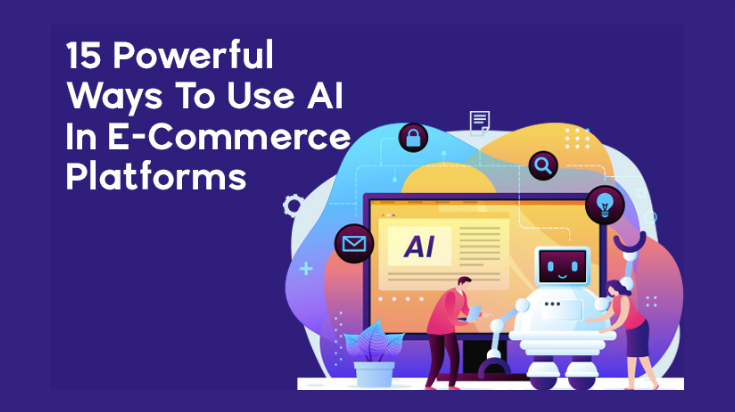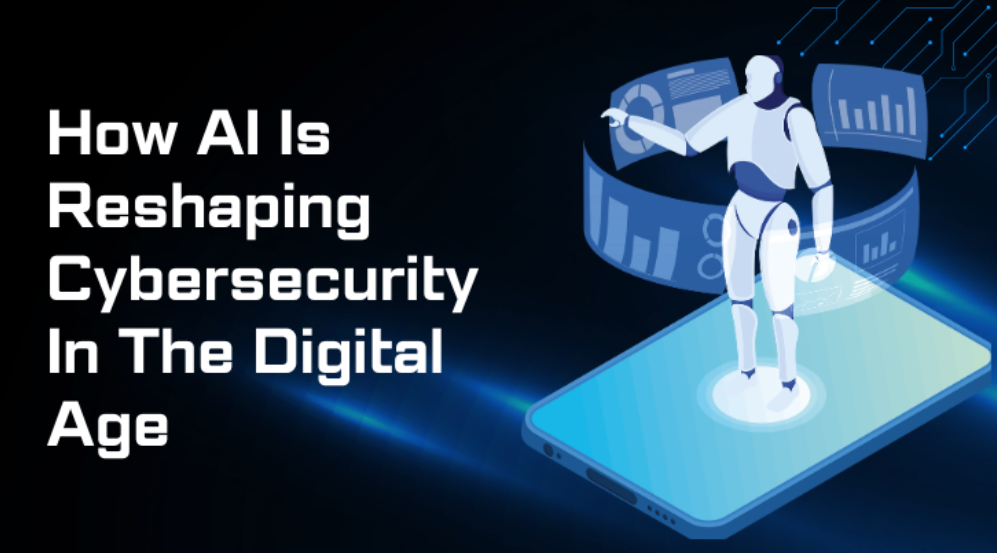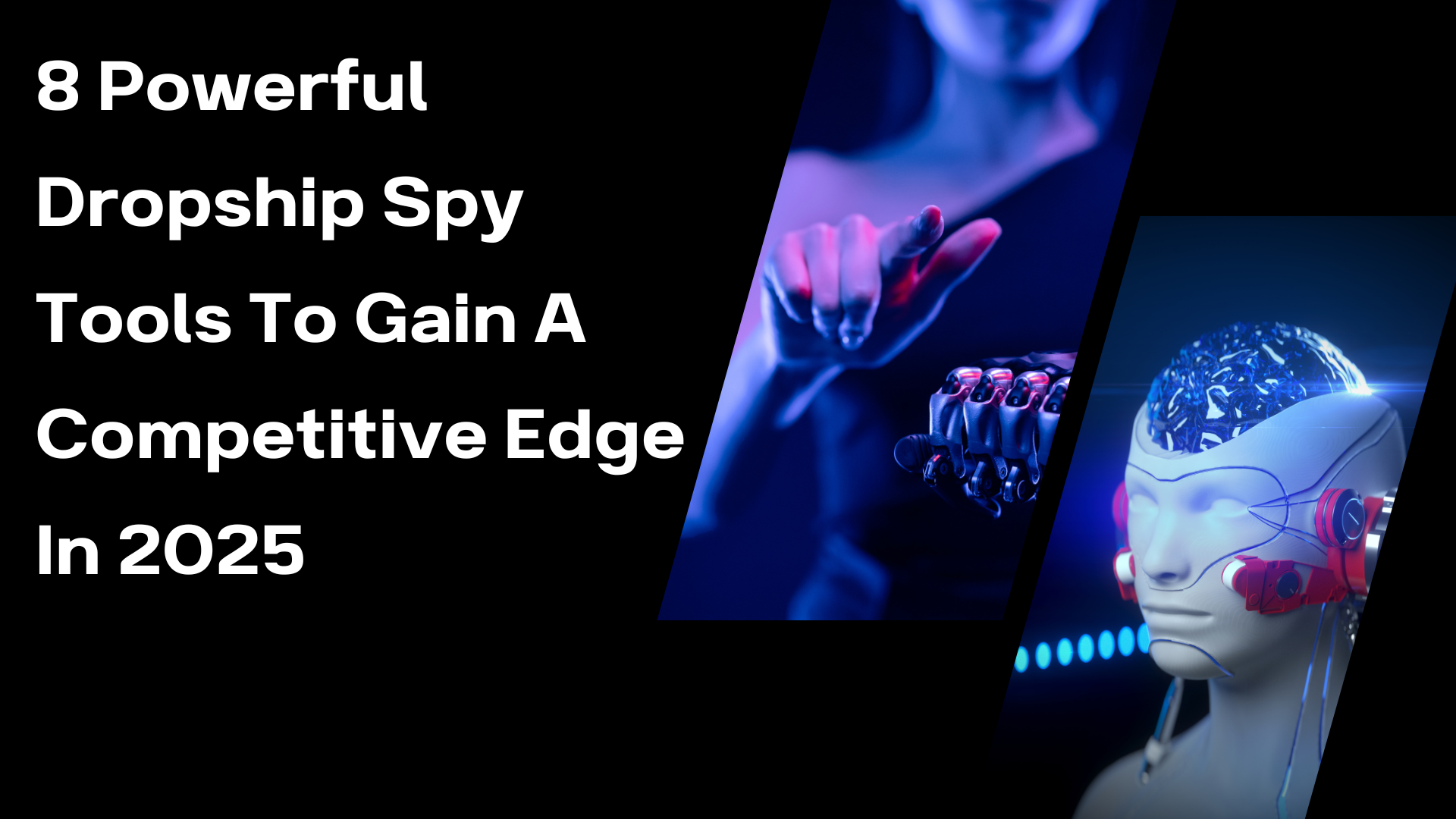Artificial Intelligence, or AI, has caused a profound impact on technology and various industries, and e-commerce is no exception. With its vast potential, AI has brought significant changes to how e-commerce operates. From automating processes to enhancing customer experiences, AI has transformed the way we shop online. With AI-driven features like chatbots and personalized recommendations, e-commerce websites have become more efficient and seamless. Embracing AI is crucial for businesses in this competitive landscape, as it shapes the future of e-commerce and determines their success in the fast-paced digital world. Ignoring AI trends can leave businesses lagging behind and at risk of losing the competitive edge.
The Role of AI in e-Commerce
AI plays a pivotal role in e-commerce by delivering personalized product recommendations, optimizing pricing, and automating customer service with chatbots. It enables visual search and virtual try-on experiences, while also detecting and preventing fraud. AI enhances supply chain management, aids in inventory optimization, and conducts sentiment analysis. Furthermore, AI predicts customer lifetime value, assists with abandoned cart recovery, and generates content. Its impact on e-commerce continues to grow, revolutionizing customer experiences, operational efficiency, and decision-making processes.
Powerful Ways To Use AI In e-Commerce
Personalized Product Recommendations: AI algorithms analyze vast amounts of data, including user behavior, browsing history, and purchase patterns, to offer personalized product recommendations. This enables e-commerce platforms to present relevant products to each customer, enhancing the shopping experience and increasing the likelihood of conversion. Personalized recommendations foster customer loyalty and can lead to higher average order values.
Customer Service Chatbots: AI-powered chatbots provide instant customer support and service 24/7. They can handle routine inquiries, such as order tracking, product information, and return policies, efficiently and accurately. Chatbots use natural language processing (NLP) to understand and respond to customer queries, offering a seamless and responsive customer service experience.
Natural Language Processing (NLP): NLP allows e-commerce platforms to analyze unstructured data, such as customer reviews, feedback, and social media comments. Retailers can gain valuable insights into customer sentiment, product preferences, and pain points, helping them make data-driven decisions and improve products and services accordingly.
Visual Search: AI-powered visual search enables customers to find products by uploading images or using their device's camera. This technology is particularly useful for fashion and home decor retailers, as customers can search for items based on specific colors, patterns, or styles. Visual search enhances the user experience and reduces search time, driving higher engagement and conversion rates.
Virtual Try-On: AI-driven virtual try-on technology allows customers to virtually try on clothes, accessories, and even makeup products before making a purchase. By using augmented reality (AR) and computer vision, customers can see how a product looks on them, reducing uncertainty and increasing confidence in their buying decisions. Virtual try-on also reduces return rates and associated costs for retailers.
Price Optimization: AI algorithms analyze market data, competitor pricing, and customer behavior to dynamically adjust product prices. This allows retailers to optimize pricing for maximum competitiveness and profitability. Price optimization strategies can include dynamic pricing, personalized pricing, and pricing based on demand forecasting.
Fraud Detection and Prevention: AI-powered fraud detection systems use machine learning to analyze transaction data and identify patterns of fraudulent activities. By monitoring real-time transactions and comparing them to historical data, these systems can detect and prevent fraudulent transactions, protecting both the retailer and the customer from potential losses.
Inventory Management: AI-driven inventory management systems predict demand based on historical data, market trends, and seasonal patterns. Retailers can use these predictions to optimize stock levels, reducing the risk of overstocking or running out of popular products. Automated inventory management ensures products are available when needed and minimizes inventory holding costs.
Customer Segmentation: AI algorithms segment customers based on various attributes, such as demographics, purchase history, and preferences. This segmentation allows retailers to create targeted marketing campaigns and personalized offers. By understanding customer segments, e-commerce platforms can tailor their promotions and content to specific audiences, increasing the effectiveness of their marketing efforts.
Sentiment Analysis: AI-powered sentiment analysis tools analyze customer feedback, reviews, and social media comments to gauge customer opinions and feelings about products, brands, and shopping experiences. Retailers can use this information to identify areas for improvement, address customer concerns, and enhance overall customer satisfaction.
Supply Chain Optimization: AI optimizes the supply chain by predicting demand fluctuations, identifying potential bottlenecks, and optimizing logistics. AI-powered supply chain management enables retailers to streamline operations, reduce costs, and ensure products are delivered to customers efficiently and on time.
Dynamic Pricing: AI-driven dynamic pricing strategies adjust product prices in real-time based on factors such as demand, inventory levels, and competitor pricing. Retailers can offer personalized pricing to individual customers, taking advantage of their willingness to pay, and maximizing revenue while remaining competitive.
Abandoned Cart Recovery: AI-powered systems can identify potential cart abandonment by analyzing customer behavior during the checkout process. E-commerce platforms can then send personalized follow-up messages or incentives, such as discounts or free shipping, to encourage customers to complete their purchases and recover lost sales.
Customer Lifetime Value Prediction: AI algorithms can predict the potential value of individual customers over their lifetime based on past behavior and interactions. This information allows retailers to prioritize their marketing efforts, focus on high-value customers, and tailor loyalty programs to retain and nurture valuable customers.
Product Content Generation: AI can generate product descriptions, customer reviews, and marketing content automatically. Using natural language generation (NLG) algorithms, e-commerce platforms can create high-quality, relevant content at scale, saving time and effort for businesses while ensuring consistency and relevance across product listings.
In conclusion, AI has transformed the e-commerce landscape by providing retailers with valuable insights, automation capabilities, and enhanced customer experiences. The continued advancement of AI technology is expected to drive even more innovative applications and further revolutionize the e-commerce industry.

















Post Comments